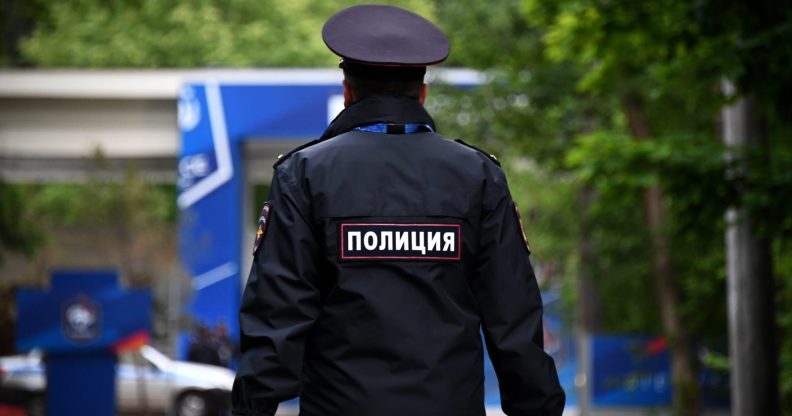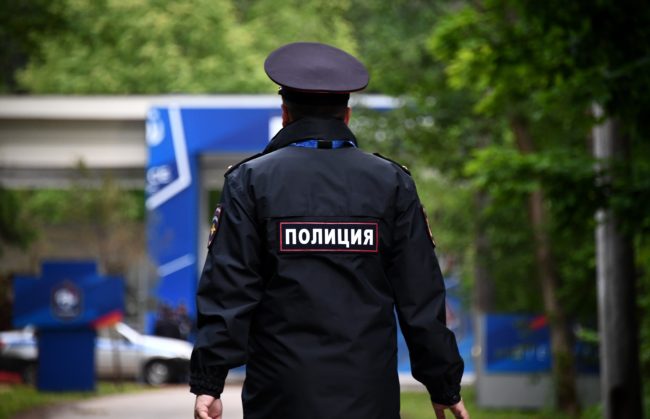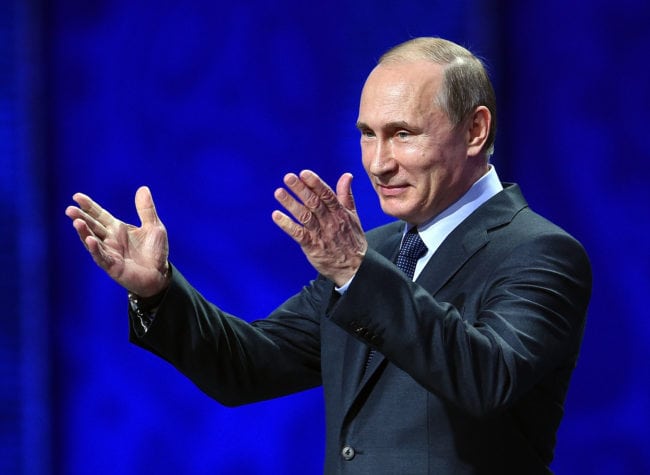Russian police won’t protect gay people from violent threats

A policeman stands guard at the entrance of the hotel of France’s national football team prior to the arrival of players, on June 10, 2018, in the village of Kostrovo, near the town of Istra, some 70 km west of Moscow, ahead of the Russia 2018 World Cup. (Photo by FRANCK FIFE / AFP) (Photo credit should read FRANCK FIFE/AFP/Getty Images)
Russian police are refusing to investigate extreme homophobic hate speech—because they claim gay people are not a valid social group.
Anna Plyusnina, who is a legal adviser at Yekaterinburg LGBT Resource Centre, alerted the police to extremist messages posted online advocating violent attacks on gay people.
However, a report on Russian-language website Znak, translated by Meduza, alleges that anti-extremism police officers told her no action would be taken because the messages were “not addressed to any group of people on the grounds of ethnic, racial, religious, or social identity.”

A policeman stands guard ahead of the Russia 2018 World Cup. ((FRANCK FIFE/AFP/Getty)
The suggestion that gay people are not even recognised as a group has caused alarm.
Plyusnina told the outlet she had been seeking to have the comments deleted.
Russian authorities have previously been accused of exploiting hate speech laws to stifle dissent.
Earlier this month, the Moscow Times reported that a popular feminist blogger was charged under hate speech laws for “inciting hatred” towards men.
Other users have faced similar action over memes posted online.
Polling earlier this year showed that homophobic attitudes have become shockingly prevalent in Russia.
Research carried out by independent Russian polling agency the Levada Center found that 83 percent of respondents consider it “always reprehensible” or “almost always reprehensible” for two adults to have gay sex.
This marks a drastic increase from 1998, when just 68 percent found it unacceptable, and 2008, when 76 percent found it unacceptable.

Russian President Vladimir Putin (Dennis Grombkowski/Getty)
The country also maintains a gay ‘propaganda’ law that human rights watchdogs say is used to clamp down on the LGBT community.
The law has been condemned by the European Court of Human Rights, which warned of a chilling effect that stifles all dissent on LGBT issues.
Russian President Vladimir Putin, the Russian Orthodox Church and nationalist vigilantes were dubbed the ‘unholy trinity’ facilitating oppression of gay people.

